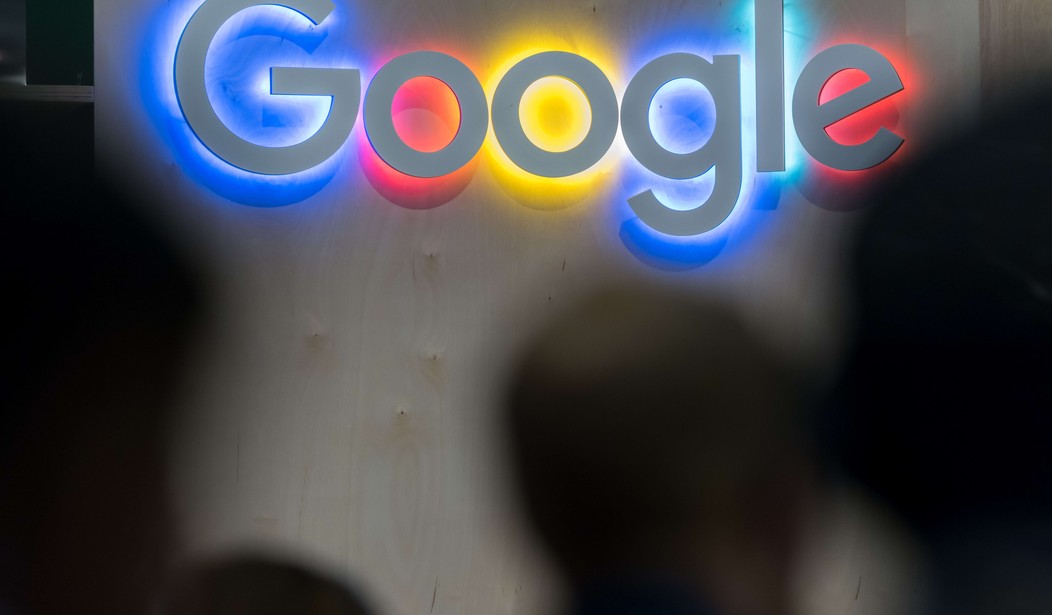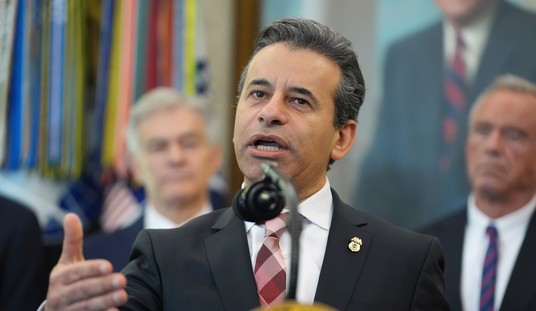On Monday, Texas Attorney General Ken Paxton announced a massive antitrust probe into Google, specifically focused on the massive internet company’s advertising power, which verges on a monopoly.
“We have 50 attorneys general from across the nation who are involved in this investigation that we’re leading from Texas,” Paxton said in a press conference on the steps of the Supreme Court building. “This is a company that dominates all aspects of advertising on the internet and searching on the internet as they dominate the buyers’ side, the sellers’ side, the auction side, and even the video side with YouTube.”
Paxton insisted, “This investigation is not a lawsuit — this is an investigation to determine the facts, and right now we’re looking at advertising. But the facts will lead to where the facts lead.”
Washington, D.C., Attorney General Karl Racine, a Democrat, joined Paxton in leading the effort. The coalition includes attorneys general representing 48 of the 50 states along with Puerto Rico and the District of Columbia. The attorneys general for California (a Democrat) and Alabama (a Republican) did not join the effort.
The coalition announced plans to investigate “Google’s overarching control of online advertising markets and search traffic that may have led to anticompetitive behavior that harms consumers,” Paxton announced on his website. The coalition will bring together legal experts from each state to work with federal authorities to “ensure that Americans have access to free digital markets.”
“Now, more than ever, information is power, and the most important source of information in Americans’ day-to-day lives is the internet,” Paxton said in a statement. “When most Americans think of the internet, they no doubt think of Google. There is nothing wrong with a business becoming the biggest game in town if it does so through free-market competition, but we have seen evidence that Google’s business practices may have undermined consumer choice, stifled innovation, violated users’ privacy, and put Google in control of the flow and dissemination of online information. We intend to closely follow the facts we discover in this case and proceed as necessary.”
Google, Facebook, and other tech companies are already facing antitrust investigations at the federal level.
A Google spokesman directed news outlets to a Friday blog post from Kent Walker, the company’s chief legal officer. Walker had responded to news that the DOJ had sent Google requests for records.
“We have answered many questions on these issues over many years, in the United States as well as overseas, across many aspects of our business, so this is not new for us,” Walker wrote. “The DOJ has asked us to provide information about these past investigations, and we expect state attorneys general will ask similar questions. We have always worked constructively with regulators and we will continue to do so.”
Robert Epstein, a Ph.D. psychologist who studies the search engine manipulation effect and who concluded that Google bias may explain Hillary Clinton’s 2016 margin of victory in the popular vote, welcomed the news. He predicted that “if Trump loses in 2020, any federal investigations of Google that he initiated will be shut down immediately. BUT THE A.G.’s WILL CARRY ON THE FIGHT. This is BIG.”
Breaking news! "Attorneys General for 48 States Open Sweeping Anti-Trust Probe into #Google." If #Trump loses in 2020, any federal investigations of Google that he initiated will be shut down immediately. BUT THE A.G.'s WILL CARRY ON THE FIGHT. This is BIG https://t.co/xDYgdzuAXH
— Dr. Robert Epstein (@DrREpstein) September 9, 2019
As for advertising, Google’s AdWords program dominates the internet, and Google also runs advertising on YouTube. After the white nationalist riots in Charlottesville, Va., in 2017, ProPublica sent threatening emails to the administrators of conservative websites, targeting their advertising. Google CEO Sundar Pichai testified before Congress that YouTube considers the far-left scandal-plagued group the Southern Poverty Law Center (SPLC) a “trusted flagger.” PragerU is suing Google and YouTube for video restrictions, and the pro-life group LiveAction is considering a lawsuit after YouTube allegedly slow-walked approval for its ads. A Google whistleblower said HR considered Christian YouTube ads “homophobic.”
The FTC closed an antitrust probe into Google without recommending charges in 2013, but multiple attorneys general have asked it to reopen the case.
Follow Tyler O’Neil, the author of this article, on Twitter at @Tyler2ONeil.









Join the conversation as a VIP Member